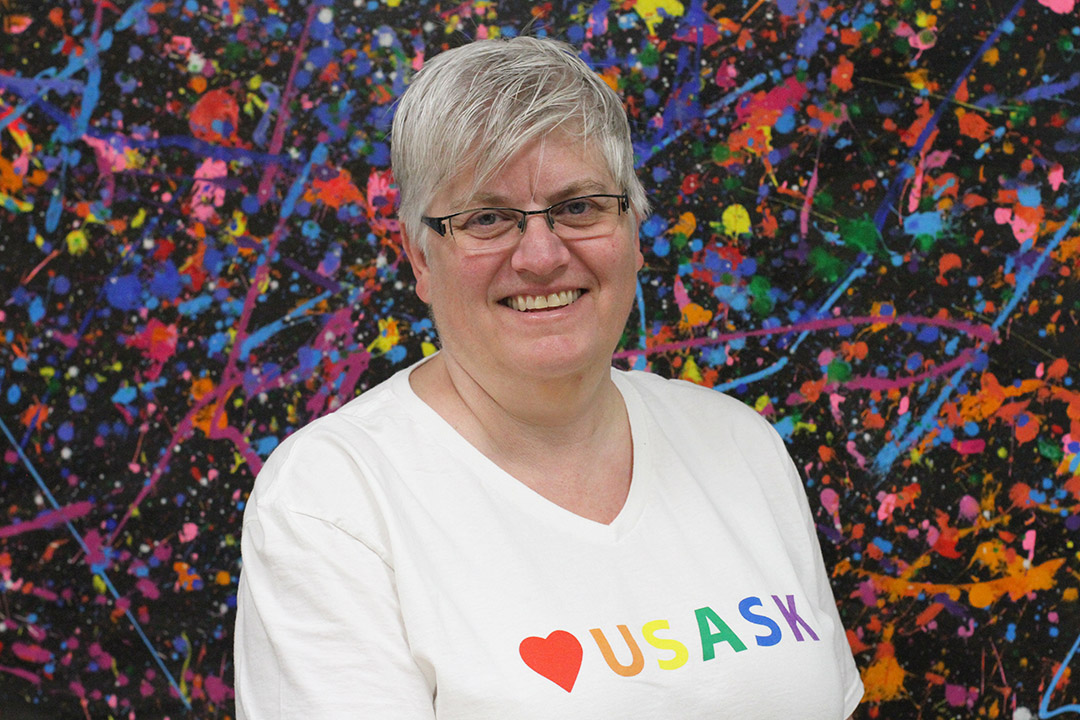
Pride celebrations key to changing attitudes
In celebration of the upcoming Saskatoon Pride Festival, Cheryl Carver, associate vice-president People and Resources talks about the importance of pride events.
By University CommunicationsCheryl Carver, associate vice-president People and Resources has worked on campus since January 2004. Carver was born in Cornerbrook, Newfoundland, and when she was six years old, moved to the small town of East Bay, just outside the city of Sydney, Nova Scotia.
Carver says she is most passionate about spending time with her wife and six-year-old boy Liam. She also enjoys travel, “especially to any place where I can hear the sound of waves crashing on the shore (I so miss living by the sea),” and music, “I enjoy introducing my son to new bands and music from my younger years, which sometimes he thinks is cool.”
In her own words, Carver explained the importance of Pride and why it is important to be a part of a community that celebrates and supports those who are part of the LGBTQ2S+ community.
On a personal note, while I realized I was gay at the age of 26 (shortly after finishing university) I did not come out to my family and close friends until I was around 29. I was met with love and acceptance from those close to me, which I am forever grateful for.
More significantly, I did not come out in my workplace until 2005, almost 20 years later. My story is not unique even today in a world that I like to think has changed to be more accepting and inclusive. Reported statistics are still high around the number of LGBTQ2S+ graduates who are already out to friends and family, but chose to go back into the closet once they enter the job market.
There have been many victories in this country around things like the right to marry and protections against hate crimes, which are a credit to the gay rights movement. Changing underlying attitudes, beliefs and biases that gay people are worth less and deserve less will take much longer.
Talking openly about this issue is critical to changing attitudes and beliefs and Pride celebrations are so important to creating a space for that kind of openness. When I can hold my beautiful wife’s hand in public without doing a risk assessment, or when I don’t have a sinking feeling in my stomach when our boy calls out to “Mommy” and “Maman” in the park because I worry about how other kids and parents will treat him, then maybe I can say that Pride is no longer needed. Until that day, the celebrations should continue.

